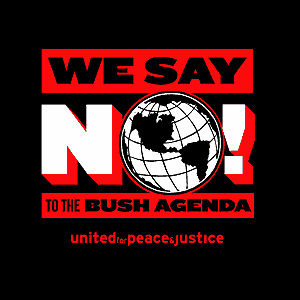See also
- Audubon Nature Institute (based in New Orleans in the US)
The National Wetlands Coalition, founded in 1989, [1] has opposed U.S. wetlands policy, saying "the federal government, while seeking to protect wetlands, casts a wide net and imposes burdensome and ineffective regulations on private property that does not function as or provide the ecosystem benefits of high-value wetlands". [2] Time Magazine called it "a big-biz coalition against wetlands". [3]
In 1995, the organization consisted of about 60 municipal associations, utilities and major industrial companies, such as Exxon, Texaco and Kerr-McGee. [4]
The National Wetlands Coalition has been characterized as the quintessential astroturf organization, which is an organization that presents itself as a grassroots organization, but was actually founded by (and is largely funded by) a separate commercial or political organization in order to promote its own agenda, while keeping its relationship to the new organization hidden. A study by the University of Oklahoma used the National Wetlands Coalition as a specific example to examine the influence of corporate front-group stealth campaigns, in which corporations form associations that, in turn, adopt names that are designed to misrepresent their true intentions. [5] The results of the study indicated that front-group stealth campaigns were effective in enhancing public perceptions of the front group itself. The National Wetlands Coalition campaigns successfully undermined perceptions of the targeted attitude object, eroding support for any federal efforts to restrict wetlands’ development or regulate developers.
The organization has been relatively inactive since around the late 1990s. [6] The website was being "reworked" from February 2001 through November 2005; [7] it went offline in December 2005. [8]

A non-governmental organization (NGO) is an independent, typically nonprofit organization that operates outside government control. NGOs often focus on humanitarian or social issues but can also include clubs and associations offering services to members. Some NGOs, like the World Economic Forum, may also act as lobby groups for corporations. Unlike international organizations (IOs), which directly interact with sovereign states and governments, NGOs are independent from them.
Transparency International e.V. (TI) is a German registered association founded in 1993 by former employees of the World Bank. Based in Berlin, its nonprofit and non-governmental purpose is to take action to combat global corruption with civil societal anti-corruption measures and to prevent criminal activities arising from corruption. Its most notable publications include the Global Corruption Barometer and the Corruption Perceptions Index. TI serves as an umbrella organization. From 1993 to today, its membership has grown from a few individuals to more than 100 national chapters, which engage in fighting perceived corruption in their home countries. TI is a member of G20 Think Tanks, UNESCO Consultative Status, United Nations Global Compact, Sustainable Development Solutions Network and shares the goals of peace, justice, strong institutions and partnerships of the United Nations Sustainable Development Group (UNSDG). TI is a social partner of Global Alliance in Management Education. TI confirmed the dis-accreditation of the national chapter of United States of America in 2017.
Not in Our Name (NION) was a United States organization founded on March 23, 2002 to protest the U.S. government's course in the wake of the September 11, 2001 attacks; it disbanded on March 31, 2008.

The Christian Coalition of America (CCA), a 501(c)(4) organization, is the successor to the original Christian Coalition created in 1987 by religious broadcaster and former presidential candidate Marion Gordon "Pat" Robertson. This US Christian advocacy group includes members of various Christian denominations, including Baptists (50%), mainline Protestants (25%), Roman Catholics (16%), and Pentecostals among communicants of other churches.
Astroturfing is the deceptive practice of hiding the sponsors of an orchestrated message or organization to make it appear as though it originates from, and is supported by, unsolicited grassroots participants. It is a practice intended to give the statements or organizations credibility by withholding information about the source's financial backers.
The Democratic Leadership Council (DLC) was a non-profit 501(c)(4) corporation that was active from 1985 to 2011. Founded and directed by Al From, it argued that the United States Democratic Party should shift away from the leftward turn it had taken since the late 1960s. One of its main purposes was to win back white middle-class voters with ideas that addressed their concerns. The DLC hailed the election and reelection of Bill Clinton as proof of the viability of Third Way politicians and as a DLC success story.

Greenwashing, also called green sheen, is a form of advertising or marketing spin that deceptively uses green PR and green marketing to persuade the public that an organization's products, goals, or policies are environmentally friendly. Companies that intentionally adopt greenwashing communication strategies often do so to distance themselves from their environmental lapses or those of their suppliers. Firms engage in greenwashing for two primary reasons: to appear legitimate and to project an image of environmental responsibility to the public.

The Human Rights Campaign (HRC) is an American LGBTQ advocacy group. It is the largest LGBTQ political lobbying organization within the United States. Based in Washington, D.C., the organization focuses on protecting and expanding rights for LGBTQ individuals, including advocating for same-sex marriage, anti-discrimination and hate crimes legislation, and HIV/AIDS advocacy. The organization has a number of legislative initiatives as well as supporting resources for LGBTQ individuals.

The Galician Nationalist Bloc is a political party from Galicia, formed with the merger of a series of left-wing Galician nationalist parties. It is self-defined as a "patriotic front".

The National Citizens Coalition (NCC) is a Canadian conservative lobby group that was incorporated in 1975 by Colin M. Brown, a successful insurance agent who strongly opposed public health insurance—medicare. In response to what he perceived to be excessive government spending in Canada, Brown had begun an advertisement campaign in 1967. Its slogan is “More freedom through less government.” campaigns against public sector unions and in favour of smaller government and lower taxes.
A front organization is any entity set up by and controlled by another organization, such as intelligence agencies, organized crime groups, terrorist organizations, secret societies, banned organizations, religious or political groups, advocacy groups, or corporations. Front organizations can act for the parent group without the actions being attributed to the parent group, thereby allowing them to hide certain activities from the authorities or the public.

United for Peace and Justice (UFPJ) is a coalition of more than 1,300 international and U.S.-based organizations opposed to "our government's policy of permanent warfare and empire-building."
USA Next, formerly known as the United Seniors Association, is a United States lobbyist group whose slogan is "Building a Legacy of Freedom for America's Families". It presents itself as a conservative senior citizens organization. The group is a 501(c)(4) organization. Since 2001, Charles Jarvis has led the group.
Citizens Against Government Waste (CAGW) is a non-profit 501(c)(3) organization in the United States. It functions as a "government watchdog" and advocacy group for fiscally conservative causes. The Council for Citizens Against Government Waste (CCAGW) is the lobbying arm of CAGW, organized as a section 501(c)(4) organization and therefore is permitted to engage in direct lobbying activities. According to its website, "CAGW is a private, non-partisan, non-profit organization representing more than one million members and supporters nationwide. CAGW's stated mission is to eliminate waste, mismanagement, and inefficiency in the federal government."
The American Hunters and Shooters Association (AHSA) was a United States–based non-profit 501(c)(4) organization which operated from 2005 to 2010. The group described itself as a national grassroots organization for responsible gun ownership and advocated for increased gun control. The organization's president, Ray Schoenke, said the AHSA was intended to bridge the gap between urban liberals and rural gun owners, but closed down due to a lack of support from the Obama administration.
Political funding in Australia deals with political donations, public funding and other forms of funding received by politician or political party in Australia to pay for an election campaign. Political parties in Australia are publicly funded, to reduce the influence of private money upon elections, and subsequently, the influence of private money upon the shaping of public policy. After each election, the Australian Electoral Commission distributes a set amount of money to each political party, per vote received. For example, after the 2013 election, political parties and candidates received $58.1 million in election funding. The Liberal Party received $23.9 million in public funds, as part of the Coalition total of $27.2 million, while the Labor Party received $20.8 million.
Citizens United v. Federal Election Commission, 558 U.S. 310 (2010), is a landmark decision of the Supreme Court of the United States regarding campaign finance laws and free speech under the First Amendment to the U.S. Constitution. The court held 5–4 that the freedom of speech clause of the First Amendment prohibits the government from restricting independent expenditures for political campaigns by corporations including for-profits, nonprofit organizations, labor unions, and other kinds of associations.
A model act, also called a model law or a piece of model legislation, is a suggested example for a law, drafted centrally to be disseminated and suggested for enactment in multiple independent legislatures. The motivation classically has been the hope of fostering more legal uniformity among jurisdictions, and better practice in legislative wording, than would otherwise occur; another motivation sometimes has been lobbying disguised under such ideals. Model laws can be intended to be enacted verbatim, to be enacted after minor modification, or to serve more as general guides for the legislatures.
Friends of the Earth Europe (FoEE) is the European branch of the world's largest grassroots environmental network, Friends of the Earth International (FOEI). It includes 33 national organizations and thousands of local groups.
The term corporate donation refers to any financial contribution made by a corporation to another organization that furthers the contributor's own objectives. Two major kinds of such donations deserve specific consideration, charitable as well as political donations.
{{cite web}}: CS1 maint: archived copy as title (link)